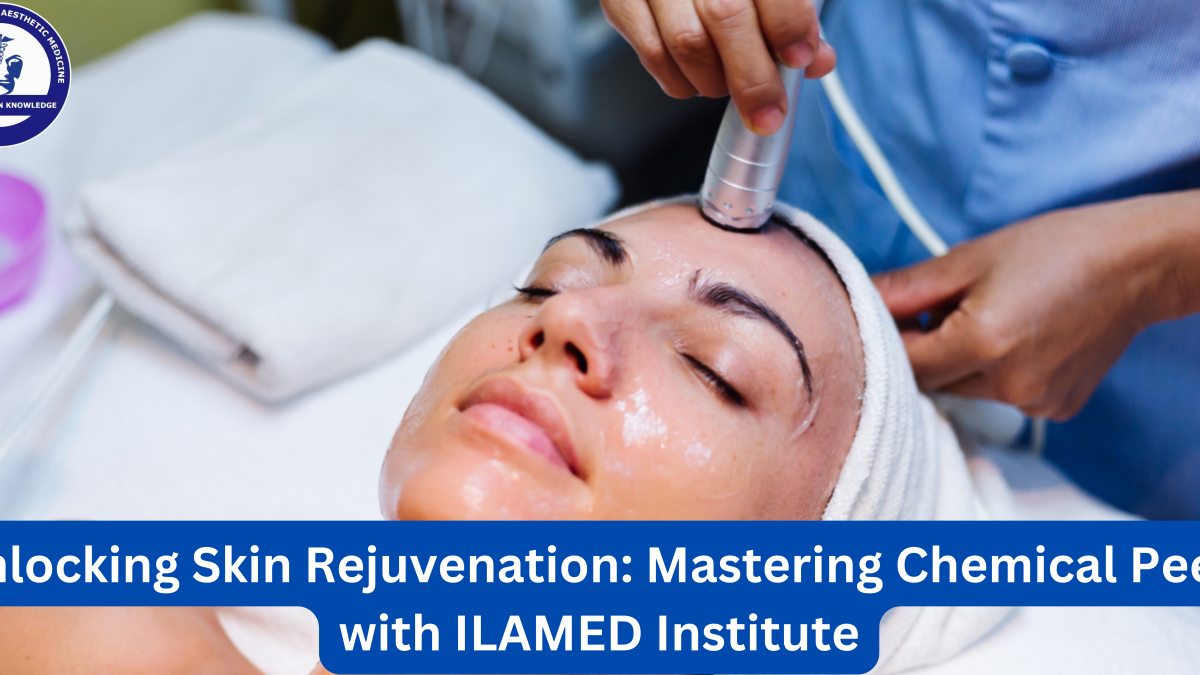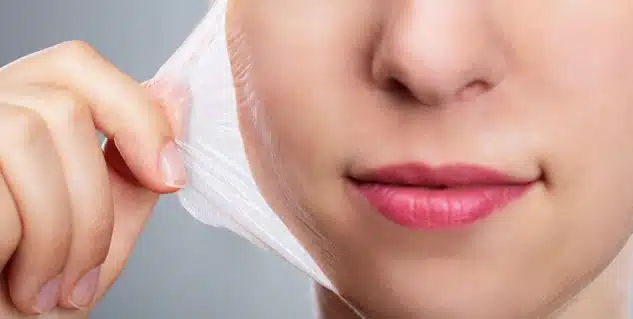- Toll Free Number:
- +91 7669331123
- info@ilamed.org
Unlocking Skin Rejuvenation: Mastering Chemical Peels with ILAMED Institute

Unlocking Aesthetic Excellence: Exploring Courses at the Institute of Laser and Aesthetic Medicine
February 29, 2024
Empower Your Confidence: Unveiling the Secrets of Cosmetic Gynecology
March 2, 2024The field of aesthetic medicine is evolving bounds and folds. Among these areas of advancement, one that has received a lot of attention is the process of rejuvenating the skin through the use of chemical peel treatments. Chemical peels are a versatile treatment that is performed to address a wide variety of skin issues, including acne scars, hyperpigmentation, and fine lines and wrinkles. The Ilamed Institute of Laser & Aesthetic Medicine provides professionals with comprehensive chemical peel courses to empower professionals with the right knowledge and skills necessary to excel in this transformative field.
Also Read: Cosmetology Careers are Growing for 2024
The institute’s extensive chemical peel course for doctors typically covers a range of aesthetic procedures, including laser treatments, energy-based devices, PRP therapy, micro-needling, mesotherapy, and of course, chemical peels. Throughout the program, doctors learn about the indications for each procedure, understanding when and why they are appropriate for various skin concerns. They also study contraindications, recognising situations where certain treatments should be avoided due to potential risks or complications. Importantly, doctors gain insights into managing complications that may arise during or after these procedures, equipping them with the knowledge and skills to ensure patient safety and optimal outcomes. This comprehensive training prepares doctors to offer a wide range of cosmetic treatments while prioritizing patient care and safety.
As the participants embark on a journey to grasp the complexities of chemical peel techniques, they will be exposed to a combination of theoretical insights and practical experience. It provides them with the knowledge and skills which eventually result in good care for their patients.
Also Read: A Beginner’s Guide to Aesthetic Medicine
Participants get an understanding of the wide variety of chemical peel alternatives and the uses for each of them, ranging from superficial peels that target surface defects to medium and deep peels that penetrate deeper layers of the skin. By conducting an exhaustive investigation of the characteristics and effectiveness of every type of peel, participants are given the ability to make well-informed judgments regarding the development of individualized treatment regimens for their patients.
Through the chemical peel training, they place a significant emphasis on gaining an awareness of the indications and contraindications associated with each type of peel. The participants immerse themselves in the complexities of patient selection, gaining an understanding of how to evaluate skin disorders and recognize individuals who are potential candidates for chemical peel treatments. Participants can strengthen their critical thinking abilities through the use of case studies and interactive conversations, which allows them to design treatment regimens to fit the specific requirements and objectives of particular patients. Participants will also receive an understanding of how to identify potential dangers and contraindications connected with chemical peel treatments, which will help them ensure the safety of their patients and reduce the likelihood of undesirable results.
Also Read: The Transformative Power of Dentistry Courses
These chemical peel classes are built on the foundation of hands-on training, which allows participants to gain vital practical experience while being guided by knowledgeable instructors. Participants can improve their technical abilities in the performance of chemical peel treatments by participating in supervised practice sessions. These sessions cover everything from pre-treatment skin preparation to post-treatment care. Through the utilisation of our cutting-edge facilities, which are outfitted with the most recent apparatus and technology, participants can acquire the self-assurance and expertise necessary to provide treatments that are both safe and effective.
As the course progresses, medical professionals delve further into the complexities of each surgery, gaining knowledge about the indications, contraindications, and potential consequences associated with each one. To attain the best results and guarantee patient satisfaction, it is essential to have a solid understanding of when it is appropriate to propose a chemical peel as opposed to another treatment technique. In addition, medical professionals acquire the knowledge and skills necessary to effectively manage complications, which equips them with the self-assurance and ability necessary to deal with any difficulties that may develop during or after treatment.
Also Read: Understanding the Cosmetology Syllabus



